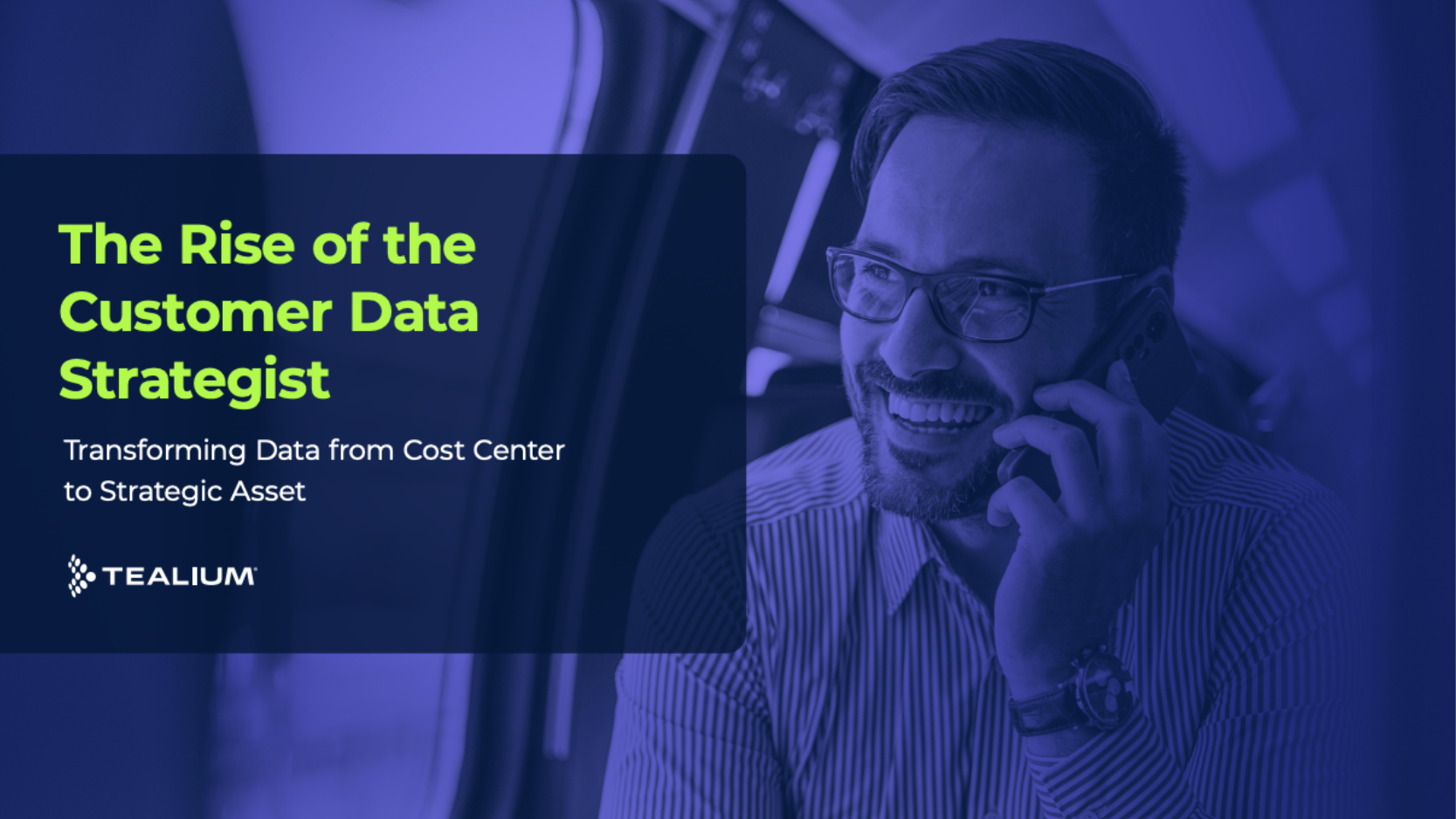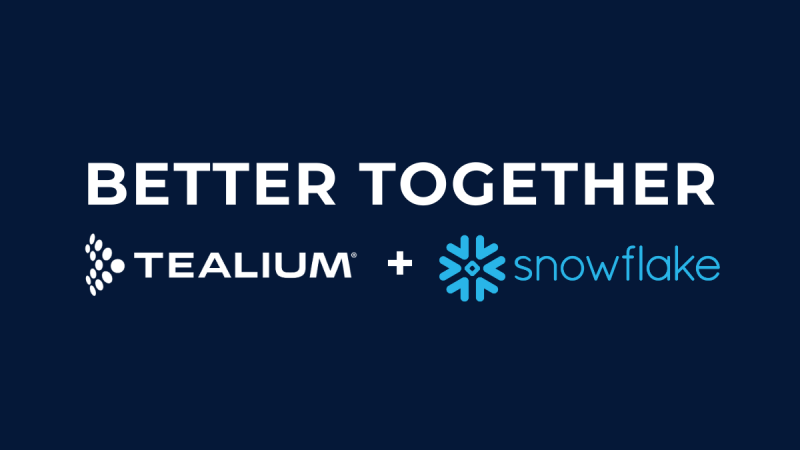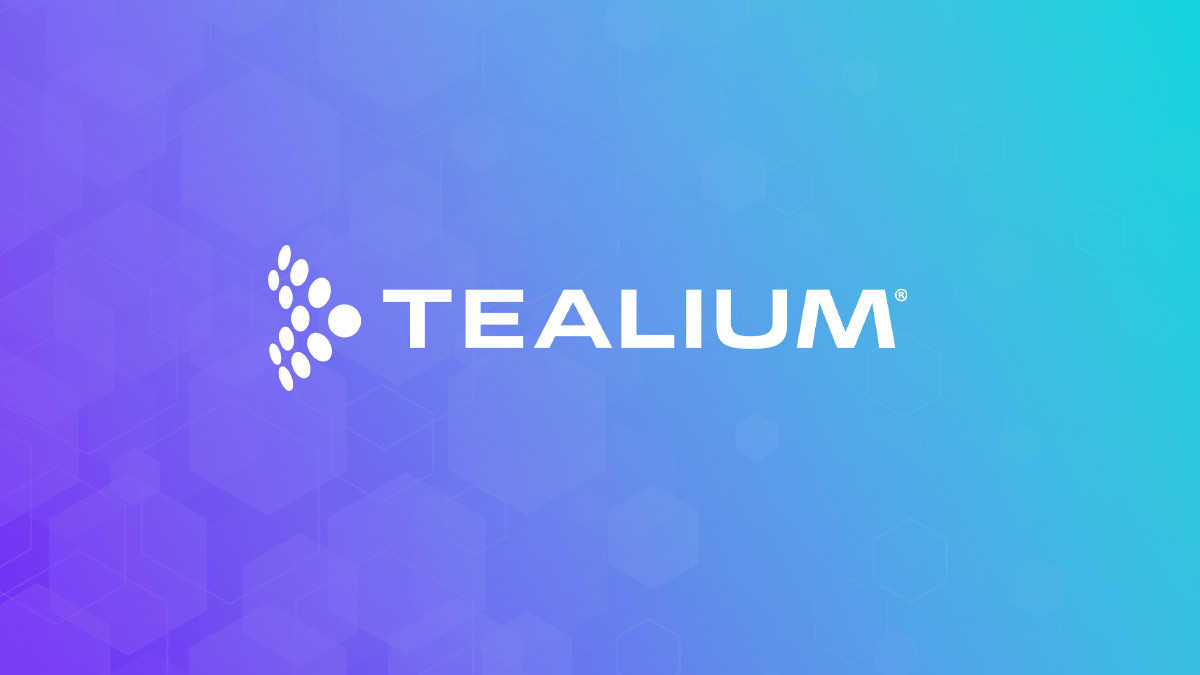Why customer data APIs are relevant to more than just developers, and how business roles should take advantage
This is part 1 of a 2-part blog series exploring the business value of CDP APIs, and Tealium’s approach to APIs in light of our recently released Moments API.
As APIs are the way for two or more computer programs or components to communicate with each other, there’s no question that developers recognize their value. Study after study has shown the importance with which the vast majority of developers treat the usage of APIs. It’s time for the whole business to get on board.
Customer Data Platforms (CDPs) and customer data more generally (including the associated API capabilities) are excellent candidates as a vehicle for this collaboration and organizational alignment. The Gartner® Magic Quadrant™ for Customer Data Platforms released just this year underscored the importance of business teams taking an active role in something that traditionally has been the province of technical teams stating, “Regardless which department is the driving force for the investment, marketing needs to lead a coalition and ensure that its needs are met in the process.”
In many ways, CDPs are API integration machines. Essentially, all the connectors in Tealium’s integration marketplace are productized, turnkey API integrations that are easily accessible through a simple UI. So CDPs, at a very basic level, help companies take advantage of APIs, but CDPs also make APIs available to drive even more value—operational value and customer value. Maximizing this value takes planning.
For the business side of the house, the value of APIs can be more complex to quantify and oftentimes can get lost in the planning process, or potentially not valued highly enough in buying decisions. With data increasingly becoming the connective tissue of the enterprise (for both non-technical and technical roles), it’s critical to close this gap to build the most efficient and effective technology solution for customer engagement with the data strategy to match. API capabilities are too important to ignore when building the tech stack to power your customer experience strategy.
Example: The New Tealium Moments API
Take Tealium’s new Moments API, recently released for early access. The capabilities of this API drastically improve an organization’s ability to deliver data-driven experiences by making customer data (the type of data that Tealium manages) more flexible, accessible, and safe/controlled. Moments API is a composable solution that enables companies to configure on-demand API access to the data within Tealium. With Tealium’s unparalleled breadth and depth of data collection capabilities across the CX landscape, this is a serious value proposition.
This means that any system that can interface with an API (whether built or bought) can tap into the extensive real-time data in Tealium for additional context and insights to deliver a more personalized experience for the customer. It doesn’t stop with personalization, though. On-demand access to real-time data about a person can serve many purposes beyond personalization— including customer service, sales team enablement, privacy compliance, and more.
This type of technical capability deserves to be considered in cross-functional business planning.
With real-time, on-demand access to customer intelligence, organizations gain the following benefit:
- Drive revenue with first-page personalization and beyond— Widen every step of the funnel right from step 1 with on-demand, real-time access to customer data for personalization. Identify high-value visitors, product ownership, audience membership, loyalty status, and more, to deliver personalized messages, imagery, offers, etc.
- Improve loyalty with enhanced customer service and support— On-demand, continuous insights into the current, ongoing context of customer engagement to help service and support agents deliver value more quickly and effectively.
- Reduce risk by checking consent— Build safeguards into data flows and activations to better comply with customer preferences and regulations.
- Drive operational efficiency with integration via API— Reduce manual steps and lower the technical bar required to integrate the systems required to deliver customer experiences.
At a high level, it’s clear how APIs can benefit the business: Historically, systems and data have been siloed, limiting their value and causing operational headaches that hinder innovation. Now, with APIs, data and functionality are modular, reusable, and scalable for new use cases. The result is a richer customer experience with more agility and efficiency for the business, ultimately scaling the value that brands can create with customers in the moments that matter most during the customer journey.
Top Three Ways Business Leaders Should Strategize Around APIs
Build Richer, More Data-driven Customer Experiences
The availability of sophisticated APIs increases data liquidity. This liquidity directly supports the use of data from more sources to power more customer experiences across more venues. By leveraging a central, data-rich CDP with robust and performant APIs, organizations can more easily unlock data previously siloed away in a particular technology or team.
A CDP is an excellent system for collaboration between business and technical teams for strategizing the data foundation powering customer experience. Where a Cloud Data Warehouse (CDW) is typically tightly guarded and most accessible to technical teams, the CDP is ideally placed within the tech stack (well-integrated with customer-facing technologies and systems of record) to provide a critical staging ground for both the business and IT teams.
Improve Operational Efficiency, Time to Value, and Resilience
APIs also provide a very flexible option for integration projects to speed operations, launch campaigns faster, and provide an easier approach to troubleshooting and QA. Instead of building applications with monolithic code bases, ad hoc integration, and laborious efforts to build from scratch, APIs can provide modular building blocks that simplify the process. This is where it becomes critical to evaluate each API capability on its own for how it can impact your strategy.
APIs can be operational in nature, changing the way your organization works by making it more programmatic and less manual. Or they can provide net new functionalities that your development team can call programmatically instead of building from scratch. In this way, some APIs will change your workflows and internal processes, while others will give you new tools that you can use to improve customer experience
Better Govern and Democratize Access to Customer Data
APIs are also especially useful for controlling access to data, whether that control is needed due to geographic restrictions, regulatory concerns, internal business policies around data governance, or other reasons. Organizations often will need to make only a subset of data available to a certain business unit, role, technology, and APIs are an effective mechanism for controlling that access.
In the context of Tealium’s Moments API above, it can be configured to make any data point in the customer profile stored in Tealium available. As such, organizations can set up API endpoints unique to various geographic regions, teams/departments within the company, applications powering internal or external systems, etc. The modular and programmatic nature of APIs is highly valuable to modern enterprises requiring this level of control.
Taking an Intentional Approach to API Adoption
We’ve discussed the value that APIs can deliver and the importance of including API adoption in your business planning, but haven’t touched too much on all the various functionalities that APIs can provide. Tealium Moments API described above is just one example (albeit a particularly flexible example, useful across a broad range of use cases).
Here’s a sampling of Tealium’s other APIs and how they each can deliver value to your business, and as such deserve some attention in your planning:
- Hosted Data Layer API— Supplement the on-page data layer with additional context to add intelligence and deliver more relevant experiences.
- Visitor Privacy API— Satisfy regulatory requirements such as GDPR and CPRA with programmatic access to customer data to retrieve known data about a specific visitor, delete a visitor record, and check the status of a delete request.
- Data Layer Enrichment API— Retrieve an active visitor profile for personalization and to deliver insights to other systems via the data layer.
Tealium is committed to continuously releasing APIs in virtually every aspect and function of our ecosystem. As discussed above, these APIs will provide a range of value from improving workflows and increasing efficiency to providing net new capabilities to your tech stack enabling you to build ever richer and more relevant experiences for your customers.
If you’d like to learn more about how Tealium APIs can benefit your business, please contact us today, or if you’re a current customer reach out to your Customer Success Manager.
Gartner, Magic Quadrant for Customer Data Platforms, Lizzy Foo Kune, Rachel Smith, Benjamin Bloom, Suzanne White, Adriel Tel, David Walters, February 14, 2024.
GARTNER is a registered trademark and service mark of Gartner, Inc. and/or its affiliates in the U.S. and internationally, and HYPE CYCLE and MAGIC QUADRANT are registered trademarks of Gartner, Inc. and/or its affiliates and are used herein with permission. All rights reserved.
Gartner does not endorse any vendor, product, or service depicted in its research publications, and does not advise technology users to select only those vendors with the highest ratings or other designation. Gartner’s research publications consist of the opinions of Gartner’s research organization and should not be construed as statements of fact. Gartner disclaims all warranties, expressed or implied, concerning this research, including any warranties of merchantability or fitness for a particular purpose.






